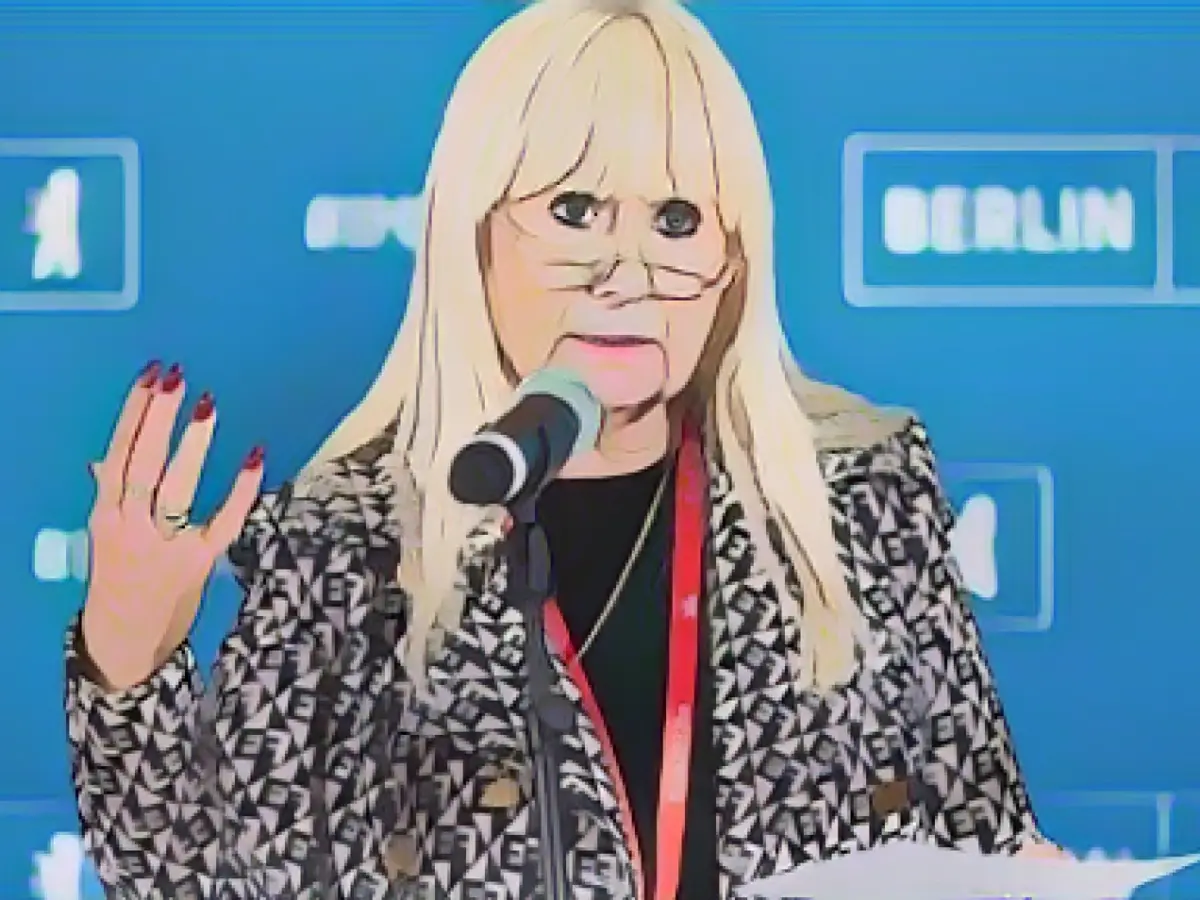Turn of the year - New Year's Eve: More police and a ban on firecrackers in Sonnenallee
Due to the firecrackers thrown at police officers last New Year's Eve in Berlin-Neukölln and current clashes over the Middle East war, the police there are planning another ban zone for fireworks. Firecrackers and rockets are to be banned at the beginning of Sonnenallee from Hermannplatz and in some side streets.
There have already beenbans on fireworks in Schöneberg and on Alexanderplatz in recent years, but for Neukölln only corresponding considerations have been made.
Interior Senator Iris Spranger (SPD) informed the interior politicians of all parliamentary groups in the Berlin House of Representatives on Friday about the preparations for the upcoming New Year's Eve and measures to prevent renewed outbreaks of violence.
Significantly more police officers than last year will be deployed on New Year's Eve to prevent riots in certain problem neighborhoods, as was the case a year ago. Last year, 1300 police officers were deployed in addition to the usual patrol car crews.
This year, more than 1000 additional Berlin police officers plus around 500 officers from the federal police are to be deployed. This means an increase of more than 1500 to a total of more than 2800 additional police officers.
A large number of police officers will already have to be deployed to cordon off and control the three no-go zones. In addition, the police will have to try to prevent people from moving into the surrounding areas. In previous years, Sonnenallee and Hermannplatz were among the places where numerous permitted and prohibited firecrackers exploded from the early evening and rockets were fired across the street and at cars.
In addition, aggressive demonstrations for Palestine and against Israel were concentrated there after the Islamist terrorist attack on Israel in October. This issue could also play a role on New Year's Eve and provided another reason for the ban on firecrackers there.
Despite the many additional measures, which also include closer coordination between the police and fire department, politicians and police expect the atmosphere in North Neukölln, Gropiusstadt and the High-Deck-Siedlung, also in Neukölln, as well as parts of Schöneberg, Gesundbrunnen and Spandau, to be heated again this year.
Read also:
- A clan member is punished here
- Traffic lawyer warns: Don't talk to the police!
- Will he be convicted as Jutta's murderer after 37 years?
- He also wanted to kill his cousin
- Despite the firecracker ban in some areas, concerns about criminality persist during New Year's Eve in neighborhoods like North Neukölln and Gropiusstadt.
- The SPD's Interior Senator, Iris Spranger, has announced increased police presence and stricter measures for the turn of the year in problematic areas like Alexanderplatz and Hermannplatz, following incidents of firecracker throws at officers.
- Last year, more than 1300 additional police officers were deployed on New Year's Eve in Berlin, with an anticipated increase to over 1500 this year, including federal police officers.
- In the past, neighborhoods like Sonnenallee and Hermannplatz witnessed numerous firecracker explosions and rocket firings, leading to concern about public safety and road obstruction during New Year's Eve celebrations.
- New Year's Eve celebrations in Berlin, especially in areas like Neukölln, Spandau, Schöneberg, and Gesundbrunnen, are expected to be heated this year, prompting ongoing security preparations and measures.
- The beautiful mountain backdrop of New Year's Eve celebrations in Berlin serves as a contrasting backdrop to the increased police presence and firecracker ban, aimed at maintaining public safety.
- Alexandra Spranger, the SPD politician in charge of Berlin's interior affairs, is utilizing her political power to ensure that New Year's Eve festivities are safe and peaceful for all Berliners, regardless of location, while implementing firecracker bans in areas prone to criminality.
Source: www.stern.de








